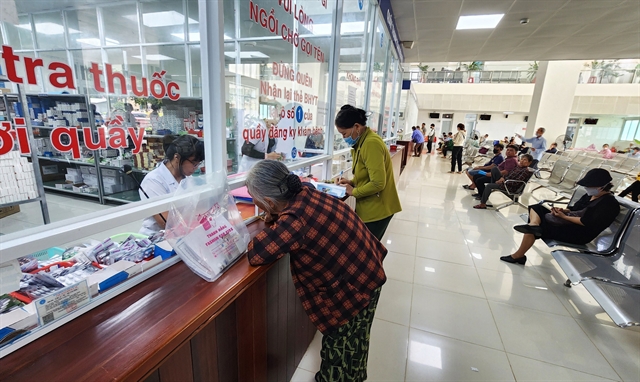 Economy
Economy

 |
| Household businesses selling silver jewellery in HCM City’s District 5. The district authorities want such enterprises to register as companies.- VNA/VNS Photo Phương Vy |
HCM CITY — The District 5 People’s Committee plans to transform more than 1,200 household businesses into companies every year from now until 2020, a local official said.
This is part of the city’s effort to develop 500,000 enterprises by 2020, Lê Thị Loan, head of the committee’s economic office, said.
With its long-standing culture of trading and services, the district is home to 9,018 business households and 7,000 enterprises.
Of them, more than 2,000 have great potential to expand into enterprises, she told a dialogue held yesterday (June 23) to disseminate the benefits of the transition to enterprises.
More than 140 household businesses participated in the dialogue, which offered them consultancy on establishing companies and tax declaration procedures.
The business households thought to have potential for expansion all have registered capital of more than VNĐ100 million (US$4,420) and pay taxes of more than VNĐ20 million (US$885) a month, she said.
Besides, more than 1,500 household businesses frequently need tax invoices, she said.
The district People’s Committee and various other agencies would facilitate the transition in the first stage, including through policies like free registration of their enterprise and free legal consultancy, she added.
Lê Minh Trung, director of the HCM City Centre of Supporting and Enterprise Development, said: “When a household business transforms into an enterprise, it operates more transparently, becoming eligible for incentives from the Government and support from local authorities.”
On June 12 the National Assembly passed the Law on Support for Small-and Medium-sized Enterprises (SMEs).
The law regulates the principles, contents and resources to support SMEs, including support for bank loans, tax breaks, market expansion, land access, and human resource development, Trung said.
SMEs account for 95 per cent of the country’s companies, contributing more than 40 per cent of the gross domestic product (GDP) and employing more than 50 per cent of the workforce. —VNS




